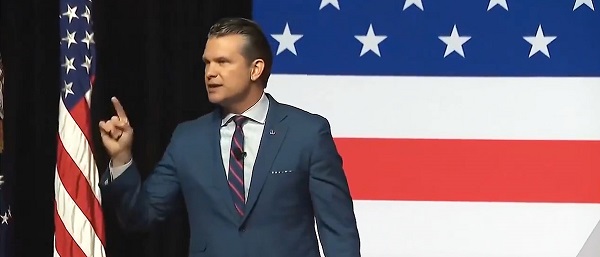Opinion
Are Penny Pinching Politicians Passe?

We all support fiscal responsibility, but only if it is done fairly. It is becoming more obvious everyday that it is not being done fairly.
Our Prime Minister is spending almost a million dollars to rub shoulders at the World Economic Forum and defends it by saying he is promoting Canada. The same goes with his many trips to other countries around the world.
There are news stories about cuts in tax deductions for low income earners, people with disabilities and parents with sick children.
The last few years, maybe decades, all politicians campaign on being fiscally responsible but that is getting to be a bit tiresome.
My taxes at all levels, keeps going up, and my services keep going down, yet my politicians seem to be living the high life. Tweets from galas, junkets, and meetings all over the country and the world but my concerns get ignored.
The cost of fixing a pot hole on my street would get more scrutiny, than a new promenade downtown, or the next big sporting event. I have trees growing in my street and my sidewalk continue to crumble after decades of neglect but we have other neighbourhoods with new streets, firehall, bus service and a high school with nary a house built.
I am not saying, do not have 77 million dollar sporting events, do not spend millions lobbying Senators in Washington for the oil companies, do not spend hundreds of millions on General Motors or Bombardier, I am not saying that. What I am asking, is why not fix my street, expand our hospital, or buy that pump for a diabetic child.
How many insulin pumps could be bought, for the price of this junket to the World Economic Forum? Just asking.
Daily Caller
Hegseth Planning Huge Shakeup Of Top Military Command: REPORT


From the Daily Caller News Foundation
War Secretary Pete Hegseth is moving forward with a massive shakeup of military leadership, restructuring top commands and moving the U.S. focus away from Europe and the Middle East, according to a report out Monday.
Five sources with knowledge of the matter told The Washington Post the Pentagon is set to consolidate U.S. Central Command in the Middle East, U.S. European Command and U.S. Africa Command into a new larger combatant command, the U.S. International Command. Other commands would be similarly consolidated, reducing the total number of combatant commands from 11 to eight. The intended restructuring is designed both to reduce the number of admirals and four star generals and refocus the U.S. military on the Indo-Pacific and Western Hemisphere, according to the sources.
The plan would be one of the most significant changes to the military’s upper echelons in decades, and the move would bring the Pentagon more directly in line with the administration’s refocusing of priorities in the recently released National Security Strategy.
Dear Readers:
As a nonprofit, we are dependent on the generosity of our readers.
Please consider making a small donation of any amount here.
Thank you!
“As a matter of Department of War policy, we will not comment on leaked documents that we cannot authenticate and rumored internal discussions, as well as specifics of architectural discussion or pre-decisional matters,” a War Department official told the Daily Caller News Foundation. “Beyond this, any insinuation there is a divide within the Department is completely false – everyone in the Department is working to achieve the same goal under this administration.”
The Post also reports the proposal was crafted under supervision by Chairman of the Joint Chiefs of Staff Gen. Dan Caine, at Hegseth’s request. Caine will also be sharing two alternate proposals on potential restructures.
Hegseth has been looking for ways to reduce the number of four star generals in the Armed Forces, which has roughly the same amount of generals now as during World War II.
Daily Caller
Paris Climate Deal Now Decade-Old Disaster


From the Daily Caller News Foundation
By Steve Milloy
The Paris Climate Accord was adopted 10 years ago this week. It’s been a decade of disaster that President Donald Trump is rightly trying again to end.
The stated purpose of the agreement was for countries to voluntarily cut emissions to avoid the average global temperature exceeding the (guessed at) pre-industrial temperature by 3.6°F (2°C) and preferably 2.7°F (1.5°C).
Since December 2015, the world spent an estimated $10 trillion trying to achieve the Paris goals. What has been accomplished? Instead of reducing global emissions, they have increased about 12 percent. While the increase in emissions is actually a good thing for the environment and humanity, spending $10 trillion in a failed effort to cut emissions just underscores the agreement’s waste, fraud and abuse.
As a nonprofit, we are dependent on the generosity of our readers.
Please consider making a small donation of any amount here.
Thank you!
But wasting $10 trillion is only the tip of the iceberg.
The effort to cut emissions was largely based on forcing industrial countries to replace their tried-and-true fossil fuel-based energy systems with not-ready-for-prime-time wind, solar and battery-based systems. This forced transition has driven up energy costs and made energy systems less reliable. The result of that has been economy-crippling deindustrialization in former powerhouses of Germany and Britain.
And it gets worse.
European nations imagined they could reduce their carbon footprint by outsourcing their coal and natural gas needs to Russia. That outsourcing enriched Russia and made the European economy dependent on Russia for energy. That vulnerability, in turn, and a weak President Joe Biden encouraged Vladimir Putin to invade Ukraine.
The result of that has been more than one million killed and wounded, the mass destruction of Ukraine worth more than $500 billion so far and the inestimable cost of global destabilization. Europe will have to spend hundreds of billions more on defense, and U.S. taxpayers have been forced to spend hundreds of billions on arms for Ukraine. Putin has even raised the specter of using nuclear weapons.
President Barack Obama unconstitutionally tried to impose the Paris agreement on the U.S. as an Executive agreement rather than a treaty ratified by the U.S. Senate. Although Trump terminated the Executive agreement during his first administration, President Joe Biden rejoined the agreement soon after taking office, pledging to double Obama’s emissions cuts pledge to 50 percent below 2005 levels by 2030.
Biden’s emissions pledge was an impetus for the 2022 Inflation Reduction Act that allocated $1.2 trillion in spending for what Trump labeled as the Green New Scam. Although Trump’s One Big Beautiful Bill Act reduced that spending by about $500 billion and he is trying to reduce it further through Executive action, much of that money was used in an effort to buy the 2024 election for Democrats. The rest has been and will be used to wreck our electricity grid with dangerous, national security-compromising wind, solar and battery equipment from Communists China.
Then there’s this. At the Paris climate conference in 2015, U.S. Secretary of State John Kerry stated quite clearly that emissions cuts by the U.S. and other industrial countries were meaningless and would accomplish nothing since the developing world’s emissions would be increasing.
Finally, there is the climate realism aspect to all this. After the Paris agreement was signed and despite the increase in emissions, the average global temperature declined during the years from 2016 to 2022, per NOAA data.
The super El Nino experienced during 2023-2024 caused a temporary temperature spike. La Nina conditions have now returned the average global temperature to below the 2015-2016 level, per NASA satellite data. The overarching point is that any “global warming” that occurred over the past 40 years is actually associated with the natural El Nino-La Nina cycle, not emissions.
The Paris agreement has been all pain and no gain. Moreover, there was never any need for the agreement in the first place. A big thanks to President Trump for pulling us out again.
Steve Milloy is a biostatistician and lawyer. He posts on X at @JunkScience.
-

 Great Reset2 days ago
Great Reset2 days agoViral TikTok video shows 7-year-old cuddling great-grandfather before he’s euthanized
-

 Alberta2 days ago
Alberta2 days agoSchools should go back to basics to mitigate effects of AI
-

 Daily Caller2 days ago
Daily Caller2 days agoChinese Billionaire Tried To Build US-Born Baby Empire As Overseas Elites Turn To American Surrogates
-

 International2 days ago
International2 days agoAt Least 15 Killed In Shooting Targeting Jewish Community At Australia’s Bondi Beach, Police Say
-

 Business2 days ago
Business2 days agoMajor tax changes in 2026: Report
-

 International2 days ago
International2 days agoTwo states designate Muslim group as terrorist
-

 Digital ID1 day ago
Digital ID1 day agoCanada releases new digital ID app for personal documents despite privacy concerns
-

 Bruce Dowbiggin1 day ago
Bruce Dowbiggin1 day agoNFL Ice Bowls Turn Down The Thermostat on Climate Change Hysteria






